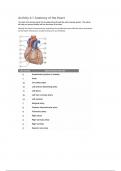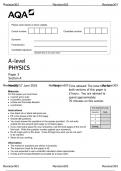displacement
Duse when acceleration
~ velocity
Unit Conversions Kinematic Equations time
displacement
at3
no
·
·
mass conversion velocity-time :
Uf =
Vi +
given
332500/1000
Find time taken or
↳ 8/ =
Sky Vit + /2 at 2}
Ky
2 ⑧
distance travelled
Gram to d
position-time
= .
kilogram 1 000
: : =
S
↳
Kilogram to Gram :
G =
Kg
x
1000 3 (3kg)(1000) =
3000
g
·
velocity displacement
- : (vf)" (vil" +
= 2ad3 FindingUtof obetled
ut] Where i
·
·
time conversion Constant Xf Xi
Velocity
: = + derived from position-time
Se/601
↳
seconds to mins : Mins =
- 60 see in min
Se(3,00
3600 see in hour
In
seconds to hours :
Hours =
#
d = Vit +at
)
↳
39 4hrs) ↓ noaccelerationa
mins to hours : Mins = Chours) 1601 160) =
240mins
d =
Vit
·
Length conversion
↓Xi +
xi
↳
Cm to M: Metres
= / , so 39 isoom/100 = Sm Xf Xi
-
= Vit
↓
↳
m +o cm :
(m =
(m)(100) 329iSm)(100) =
500 em Xf =
Xi + Vit
L
cubic cm to cubic m : (cm3) = (m3)(100
Vector Addition
A
7 Finding Magnitude of X1Y component
of a vector
B
Vectors :
quantity wh both and direction (e velocity , displacement
↳ head to tail
& is adjacent (c
magnitude .
g .
force,
V ↳
A B v =
1/sin/cos0 or ooposite (sin
-
Adjacent to 0 Cos
<P ( 3)
+ =
- to component you
.
g
=
e .
to find
Ooposite to G = Sin trying
O
Vector Subtraction
10 ↳ head to tail NEGATIVE
>
a XB
Components of Vector
L
↳
breaks vector down into parts
Projectile
↳
Motion Equations
X-axis (horizontal) and y-axis (vertical
L
O R V Sin (20)
Inovsn
· =
is
always the vector makes wh X-axis
angle
G
Position -
Time Graphs
2g
(t) velocity 1-) velocity
( + acceleration
M
·
e
30 Eof N
-D .
.
g
Total Displacement for vector wh 2 components
t
① If
velocity , Find
④
change
in Find total displacement wh
mag-direction
( +) there is
1-) velocity velocity a
( acceleration
a = BY At D =
(dy(2 (dy)2
+
②
Find displacement (distance travelled
diag only numorater
- always y on
Vit + at
2
⑤ Use tan
constant constant
1) velocity
d= to find angle
(H)
velocity
③ Break down into X and
y components
0 =
tan" ( % a)
coslsin based
3
· determine
DX =
DCosO on
adjacent looposite from
it makes wix-axis
angle
Dy DSinG
=
(set equal)
3
used to find :
Relative Speed
·
-
how fast distance between objects is
Constant Speed increasing or
decreasing
L
Xf =
Xi + ut /how fast can
-
chasing problems
chaser overtake ?
·
Acceleration
12at difference in speeds
-
↳
Xf = vt +
, Kinematic Equation breakdown Set up variable equations when :
& Identify what you're being
① d =
vit +
112 at
2
·
unknown asked to find
quantity
·
relationships between quantities ② Assign a variable to unknown
use when :
you only have one velocity value , can be used to find
acceleration , distance , or time
③ Write out equation that connect
· involves dependant changing quantity
known values to unknown
② Uf =
Vit at ④ Solve equation
use when displacement isn't required , how
long it will take to reach
:
when you know
max
height ,
a is
g
Newtons 2nd Law Motion F
of : =
m x a
③ v vi2 = + had ↳
acceleration of an
object depends on two variables
,
the net force
acting on object
and the mass of object
use when : time isn't required and you have Uf and Vi
,
can
aid distance
finding acceleration
in or
·
Force
appliedDangle wh NO friction
↳ Find horizontal component of Force
Magnitude Change in Velocity (DU) line distance from Up to Of Forizontal (F) (sin/cos) &
:
of
straight
=
L if perpidicular then use
pythagoreum
gives Vi , Uf and t
·
Unknown force but ,
↳D
if not then :
L Understand
equations needed Tan =%a
①
Break initial velocity into X and
y ③ F = mxa Sin = In
L (v) (Cos/Sin) &
↓ cos
= In
& Break final velocity and y
BYDt
into X
② a =
LD (V) (Cos/sin) ⑦
① DV = (Vf) (Vil-
③ Find Change
in velocity for both xly components
LD (DVx) (Vfx) (Vix)
-
=
↳
(DUy) (Vfy) (iy)
= -
Newtons Law of Universal Gravitation
④ Find
Magnitude use when dealing
wl gravitional force between 2
:
masses not on surface of Earth
=
(Vx)2 + (y)2
gravitation
constant mass
(6 .
67x10-") mass of
Angle of Tension : determined by direction of tension G Mm
person
relative to some sense of direction F =
R2
Chorizontal or vertical)
weight radius
Ask yourself where does the pull /displacement) create tension ( force due
: to
what axis ? gravity)
and
along
Translational Equilibrium : all forces balance out and Fret
object is not
accelerating .
↳
·
subtract if
sum of all forces possing
(horizontal + vertical) must =
add if in same direction
going
·
Three forces where one is unknown 2 .
.
g Fret =
Forizontal
-
Ffriction
① Resolve each force into horizontal and vertical components , even unknown Fnet =
Fuertical +
Fnormal
& ·
(9 81m/s ?
Set all horizontal (X) components to zero find equation I in newtons and law for vertical is
,
solve to a
gravity .
③
Set all find equation 2
vertical (y) components to zero
,
solve to
& stack both equations (Sin numorater
on top of each other as
⑤
Solve for
using tan
⑥
Plug O into either equations to find R










